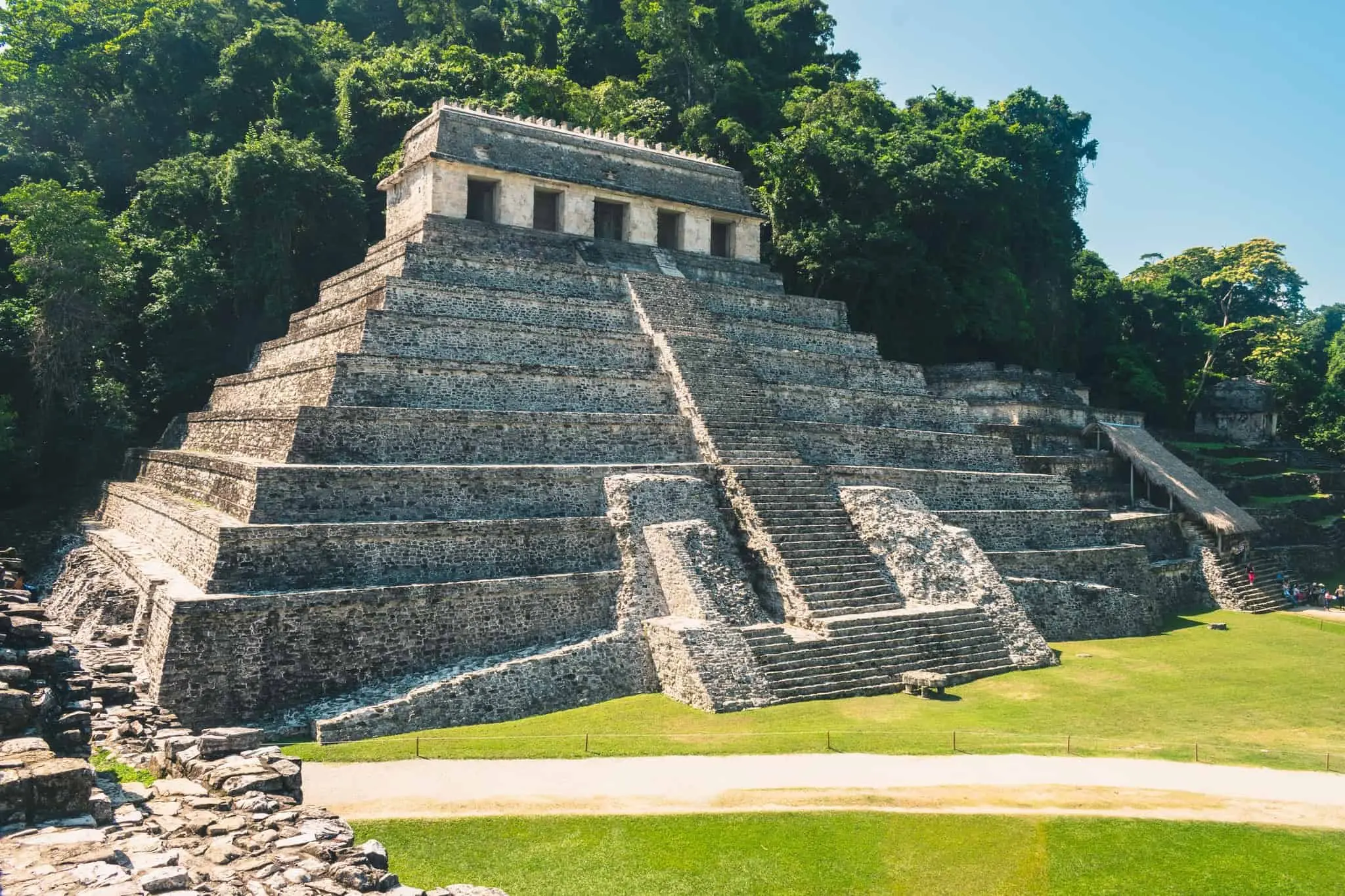Welcome to Facts Vibes! Today, we’re delving into the captivating world of the Mayans. Join us as we uncover 25 intriguing facts about this ancient civilization, from their advanced understanding of astronomy to their enigmatic hieroglyphic writing system. Let’s journey through the mysteries of the Mayan culture together!
The Enigmatic World of the Mayans: Uncovering 25 Fascinating Facts
The Enigmatic World of the Mayans: Uncovering 25 Fascinating Facts
The Mayans were an ancient Mesoamerican civilization known for their remarkable achievements in art, architecture, astronomy, and mathematics. Their enigmatic world continues to captivate our imagination, and here are 25 intriguing facts that shed light on this fascinating civilization.
1. Astronomy: The Mayans were skilled astronomers, accurately predicting celestial events such as eclipses and solstices.
2. Calendar System: They developed a complex calendar system that consisted of 18 months with 20 days each, plus a separate 5-day month.
3. Mathematics: Mayan mathematicians used a base-20 numbering system, and they made significant advancements in the concept of zero.
4. Architecture: Their cities, such as Tikal and Chichen Itza, featured impressive pyramids, temples, and palaces.
5. Trade Networks: The Mayans established extensive trade networks, exchanging goods such as jade, obsidian, and cacao.
6. Ballgame: They played a ritualistic ballgame called “pitz,” which symbolized the cosmic battle between day and night.
7. Bloodletting Rituals: Mayan elites performed bloodletting rituals as a way to communicate with the gods and access supernatural powers.
8. Hieroglyphic Writing: Their writing system consisted of intricate hieroglyphs, which adorned their monuments and codices.
9. Mayan Codices: Only three Mayan codices have survived, providing valuable insights into their culture and history.
10. Flourishing Cities: At its peak, the Mayan civilization had numerous thriving city-states across present-day Mexico, Guatemala, Belize, Honduras, and El Salvador.
11. Religious Beliefs: Mayans worshipped a pantheon of deities, with gods representing natural elements and celestial bodies.
12. Cenotes: These natural sinkholes held spiritual significance for the Mayans, serving as entrances to the underworld.
13. Human Sacrifice: Some Mayan ceremonies involved human sacrifice, often as offerings to appease the gods.
14. Rituals and Ceremonies: Mayans conducted elaborate rituals and ceremonies to honor their gods and ancestors.
15. Decline: The reasons for the decline of the Mayan civilization remain a subject of scholarly debate, with factors such as environmental degradation and warfare being proposed.
16. Epigraphy: Deciphering Mayan hieroglyphs has contributed to a better understanding of their history and culture.
17. Stelae: Mayans erected stelae – carved stone monuments – to commemorate significant events and rulers.
18. Mesoamerican Ballcourt: The ballgame was played in a Mesoamerican ballcourt, a central feature of Mayan cities.
19. Cultural Continuity: Despite the decline of the classical Mayan civilization, many aspects of their culture persist among contemporary Maya communities.
20. Artistic Achievements: Mayan art, including pottery, sculpture, and murals, showcases their exquisite craftsmanship and attention to detail.
21. Temple of the Inscriptions: This temple in Palenque houses the tomb of the renowned Mayan ruler Pakal the Great.
22. Bee Symbolism: The Mayans revered bees and incorporated bee symbolism in their art and mythology.
23. Urban Planning: Mayan cities were meticulously planned, with plazas, temples, and residential areas laid out in a structured manner.
24. Medicinal Knowledge: The Mayans possessed advanced knowledge of medicinal plants and healing practices.
25. Contemporary Relevance: The legacy of the Mayans continues to influence art, astronomy, and culture, while ongoing research unveils new insights into this enigmatic civilization.
These fascinating facts offer a glimpse into the rich and complex world of the Mayans, reminding us of the enduring allure of this ancient civilization.
Most popular facts
The Maya civilization existed for over 2,000 years in Mesoamerica.
The Maya civilization existed for over 2,000 years in Mesoamerica.
They developed a sophisticated writing system using hieroglyphs.
The ancient Egyptians developed a sophisticated writing system using hieroglyphs.
Mayans were skilled astronomers and developed a complex calendar system.
The Mayans were skilled astronomers and developed a complex calendar system.
The Mayan city of Tikal was one of the largest ancient cities in the Americas.
True. Tikal was indeed one of the largest ancient cities in the Americas.
Chichen Itza, a prominent Mayan city, is known for the iconic pyramid El Castillo.
Sure! Chichen Itza, a prominent Mayan city, is known for the iconic pyramid El Castillo.
The Mayans were advanced in mathematics and used a base-20 numbering system.
Yes, the Mayans were advanced in mathematics and used a base-20 numbering system.
They were skilled architects, constructing impressive temples and palaces.
The skilled architects constructed impressive temples and palaces.
Mayans practiced human sacrifice as a part of religious rituals.
The Mayans practiced human sacrifice as a part of their religious rituals.
Their economy was primarily based on agriculture, including the cultivation of maize.
Their economy was primarily based on agriculture, including the cultivation of maize.
The Mayans engaged in trade with other Mesoamerican societies.
The Mayans engaged in trade with other Mesoamerican societies.
Mayan society was stratified, with a ruling class and commoners.
Mayan society was stratified, with a ruling class and commoners.
Their religious beliefs revolved around a pantheon of deities.
Their religious beliefs revolved around a pantheon of deities.
The collapse of the Mayan civilization is still a subject of scholarly debate.
The collapse of the Mayan civilization is still a subject of scholarly debate.
The Classic period of the Maya civilization saw the flourishing of art and architecture.
The Classic period of the Maya civilization witnessed the flourishing of art and architecture.
Modern-day descendants of the Maya continue to preserve their traditions and language.
Yes, modern-day descendants of the Maya continue to preserve their traditions and language.
In conclusion, the Mayan civilization continues to fascinate and inspire with its rich history, advanced knowledge of astronomy, impressive architecture, and intricate calendar system. By delving into these 25 interesting facts , we gain a deeper understanding of the remarkable achievements and enduring legacy of the Mayans .
